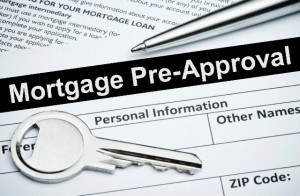It’s a Sellers market out there…and a hot market too!
With it can come disappointment if you are not properly prepared.
You, your realtor and the seller all think you have been pre-approved and you are on solid footing. You purchase only to find out there is a blemish with your credit, or because you are a contract worker not a permanent employee; the bank tells you after you have purchased without conditions, you are declined. Buyers are sent scrambling after they have waived financing and low and behold there are issues, issues they never even considered. If financing cannot be secured, buyers risk being sued by the vendor.
Thorough Analysis Needed Prior to Going ‘Firm’
We have had a couple of cases come to us just two weeks before closing, in crisis. We had to pull all stops to attempt to find financing. Both clients were surprised to find out after purchasing and going firm that the bank pulled the plug on financing even though they were ‘pre-approved’. The bank never pulled credit for the ‘pre-approval’s’ causing them to miss that both clients had issues, one client having a former bankruptcy and the other a collection. They would have never qualified for a prime bank rate with these major issues flagged on their credit bureau. Fortunately to our relief and our clients, we were able to get both these mortgages approved, and even successfully negotiated a fabulous rate with a prime lender for the client with a collection.
Again, the benefit of dealing with a mortgage broker with a great reputation.

Even just this past weekend, a client called in a bit of a panic because there were four offers going in on a house. We re-assured the realtor that our client was fine to go in firm because we had completed due diligence on their ability to buy. If we were not able to be contacted on a weekend they wouldn’t have purchased. We help our clients in these crazy times to feel totally secure to go ahead without financing conditions if need be.
No Conditions are Putting Buyer’s at Risk
We are seeing mortgages ‘in crisis’ days before closing because buyers are not getting pre-approved. Multiple offer scenarios are resulting in buyers feeling forced to go ‘firm’ to win.
This is so dangerous and stressful for all concerned, not to mention it can also be a tremendous waste of everyone’s time. However, avoiding such a nasty scenario can be easily prevented.
The Banks Pre-Qualification is NOT a Pre-Approval
First, understand that if you are pre-approved by the bank you actually are not. You go out and buy thinking you are solid when it couldn’t be further from the truth.
You see, the banks do not pre-approve you like we do. The banks only pre-qualify you, meaning that they ask you for your income, crunch a few numbers and tell you verbally only what you can afford. That’s all. And that is not enough.
Get Your Pre-Approval from The Price Team so You Have Peace of Mind
All this can be avoided if you get pre-approved by us at the lowest rate in Canada, in the first place. We verify your income, employment, credit and down payment in writing to ensure there will not be any surprises prior to you shopping for a house. We do a thorough analysis, you can count on, especially if you need to go firm on financing.
When we pre-approve you, the only thing still outstanding is the property you buy, which must be marketable and in good condition. When these conditions are met, a smooth buying experience ensues.
With our pre-approval you can go out and buy with complete confidence. You can bank on that!


 When you purchase your home, there are 6 additional costs to account for. They include:
When you purchase your home, there are 6 additional costs to account for. They include: Being fully pre-approved means that the lender has agreed to have you as a client (you have a pre-approval certificate) and the mortgage broker has reviewed and approved ALL your income and down payment documents (as listed below) prior to you going house hunting. Many bankers will say you’re approved; you go out shopping and then they say ‘sorry you not approved’ due to some factor. Get a pre-approval in writing!
Being fully pre-approved means that the lender has agreed to have you as a client (you have a pre-approval certificate) and the mortgage broker has reviewed and approved ALL your income and down payment documents (as listed below) prior to you going house hunting. Many bankers will say you’re approved; you go out shopping and then they say ‘sorry you not approved’ due to some factor. Get a pre-approval in writing! Ask people this question and you will get a variety of answers. Most home owners will say 10% is what you should put down. However, if you speak with your grandparents, they are likely to suggest that 20% is what you need for a down payment.
Ask people this question and you will get a variety of answers. Most home owners will say 10% is what you should put down. However, if you speak with your grandparents, they are likely to suggest that 20% is what you need for a down payment.


